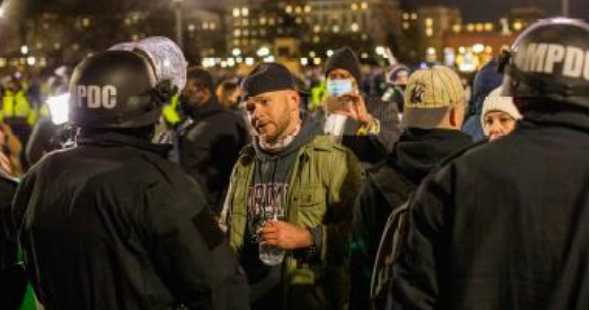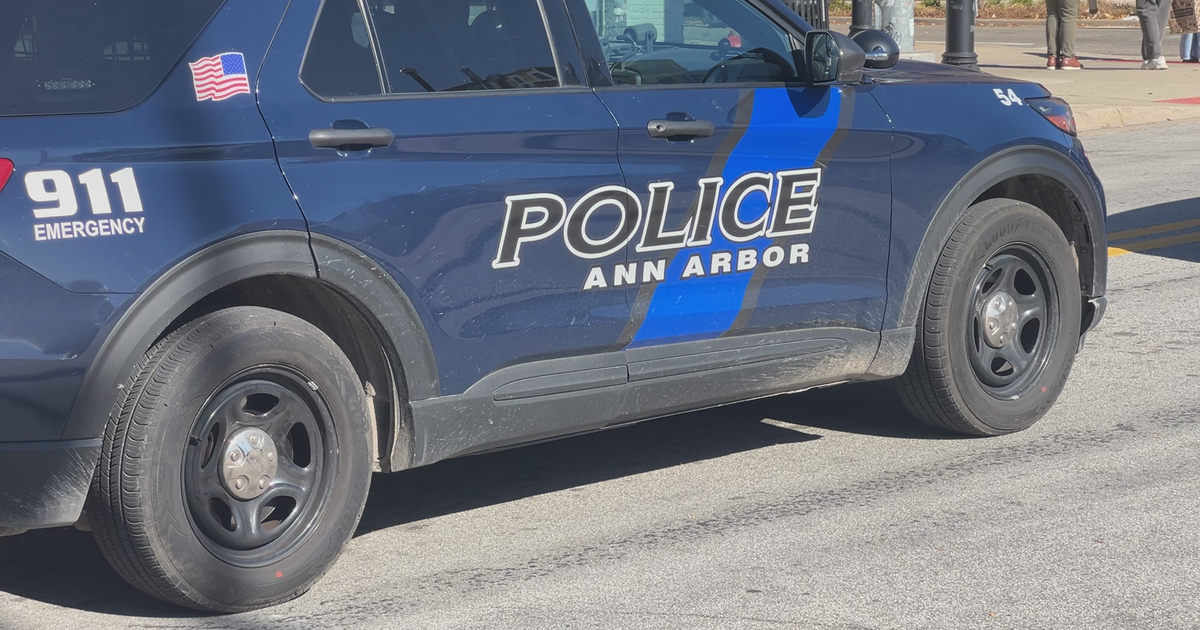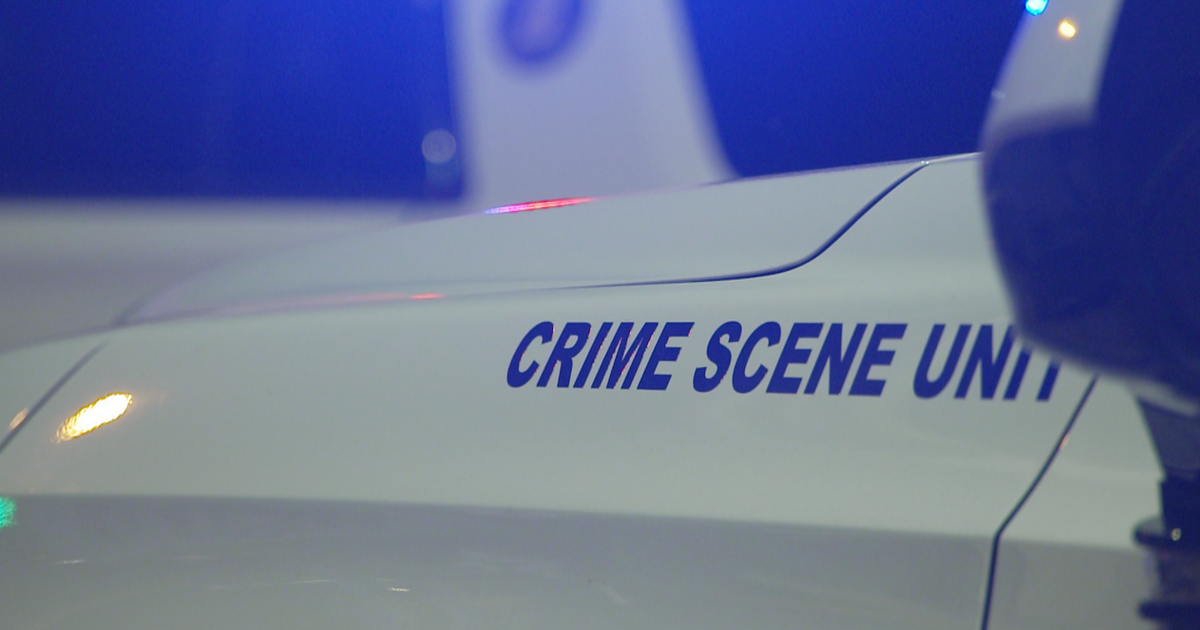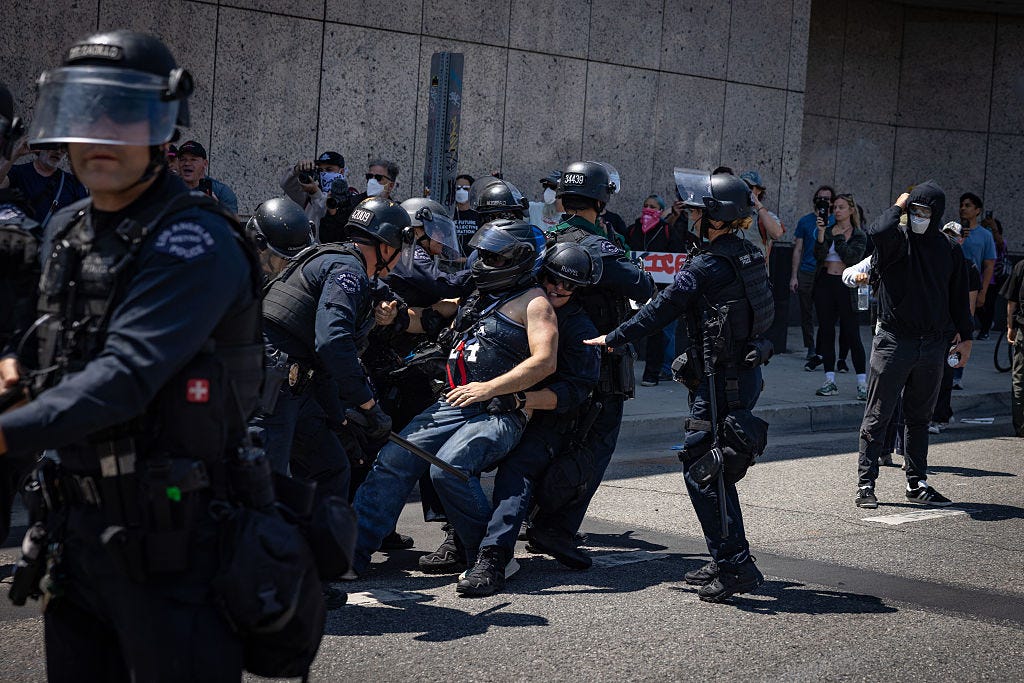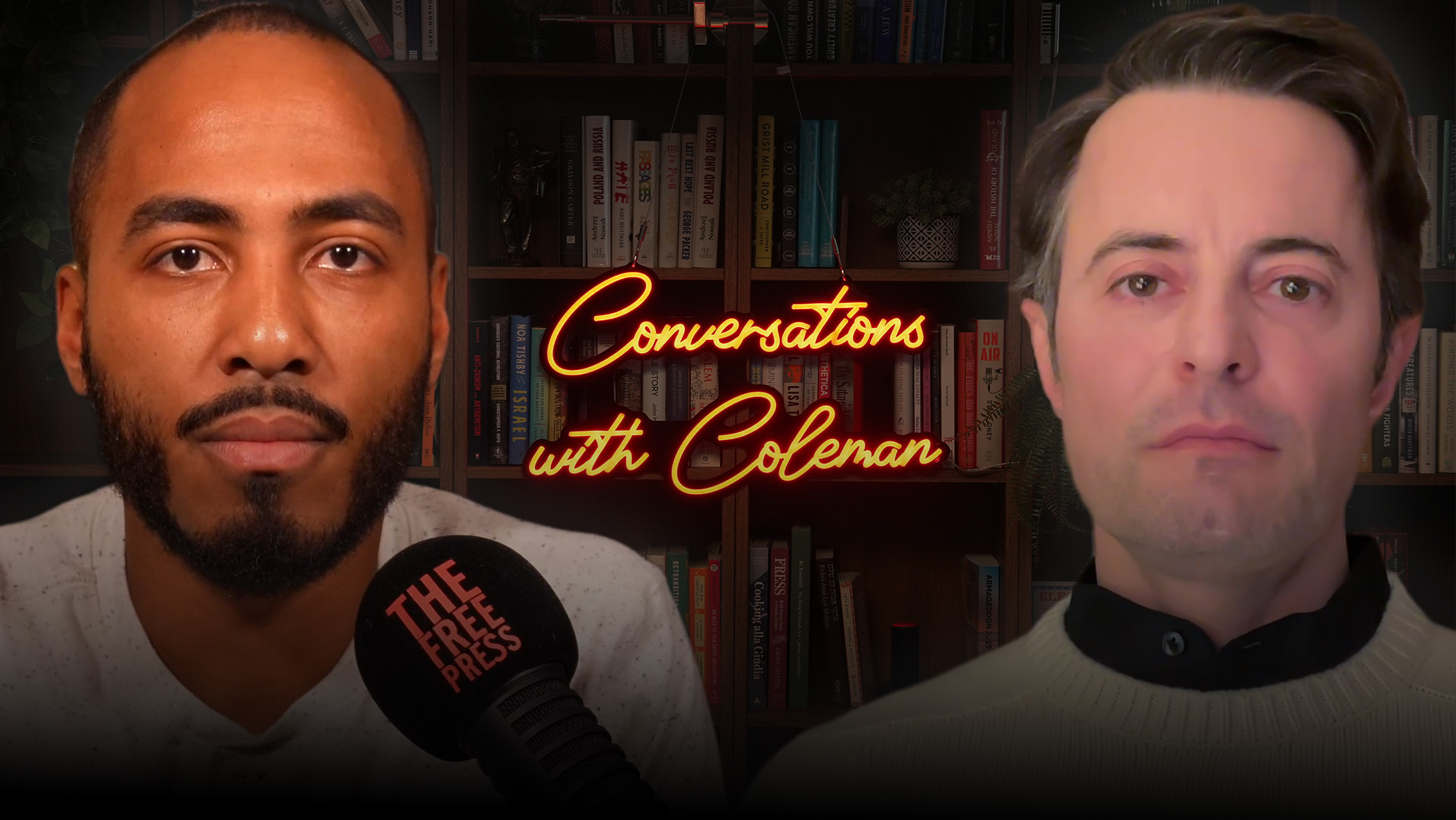A year after January 6 Capitol riot, hundreds face charges but questions remain
One year ago on January 6, a mob forced its way onto restricted grounds in Washington, D.C., past police barricades and lines of officers, and into the U.S. Capitol building.
Congress was forced to temporarily halt its counting of the 2020 Electoral College votes, a process that would ultimately certify the election of President Joe Biden.
Four who were at the rally died on January 6: Ashli Babbitt, who was shot by a Capitol Police officer, and three others who died of separate "medical emergencies," authorities said at the time.
Capitol Police Officer Brian Sicknick, who was sprayed with a chemical substance during the riot, collapsed later and died from two strokes on January 7, the D.C. medical examiner's office said.
In the days and months after the attack, four more police officers who responded to the Capitol that day died by suicide.
FBI Director Christopher Wray has called January 6 an act of "domestic terrorism." His agency and other law enforcement entities have been tasked with finding and charging those responsible.
Prosecutors have called the case "unprecedented" in scale, stating in court that the Capitol attack "is likely the most complex investigation ever prosecuted by the Department of Justice."
Now, nearly 365 days later, here is where the investigation into the January 6 Capitol attack stands, based on CBS News reporting and analysis.
Over 700 people charged
The U.S. Attorney's Office for the District of Columbia, tasked with spearheading the investigation and subsequent prosecutions, has charged over 700 defendants with alleged crimes stemming from the January 6 Capitol riot, according to a CBS News count.
More than 600 individuals have been accused of entering or remaining in the restricted Capitol grounds, the most common crime alleged so far, which carries a maximum sentence of 1 year in prison and a $100,000 fine at the misdemeanor level.
Prosecutors have also charged hundreds of defendants with other, lower-level counts of illegal picketing and disorderly or disruptive conduct on Capitol grounds.
But prosecutors also continue to build more serious cases. A growing subset of those charged are accused of theft, assault, destruction of property obstruction, and even conspiracy against the United States.
More than 30 defendants have been charged with theft of government property, the U.S. Attorney's Office says, including Riley June Williams, who is alleged to have stolen a laptop from Nancy Pelosi's office. Williams has pleaded not guilty to a multi-count indictment and has made multiple requests to get certain charges thrown out.
At least 225 defendants have been charged with assaulting, impeding, or resisting law enforcement during the riot, the office reports, including over 75 who are accused of using a deadly or dangerous weapon against officers, like chemical irritants, flagpoles, and even a tomahawk axe.
Approximately 140 members of law enforcement were assaulted on January 6, including 80 from the U.S. Capitol Police. Sixty were D.C. Metropolitan Police officers, according to the U.S. Attorney's Office.
And the Justice Department says about 10 people have been arrested on charges related to assaulting a member of the media or destroying their equipment as they covered the events of January 6.
During proceedings for at least three of about 45 defendants charged with the destruction of government property, the government has said their crimes on Capitol grounds amounted to "terrorism" — an allegation that is not itself a charge, but could ultimately influence prison sentences if they are found guilty.
Additionally, about 275 defendants have been charged with corruptly obstructing, influencing, or impeding the official proceeding of certifying Electoral College votes, or attempting to do so — one of the more common felony offenses charged. These individuals are accused of committing acts that impede or obstruct the normal function of government and face a maximum sentence of 20 years in prison if convicted.
More than 40 have been charged as part of a broader conspiracy, a count that alleges defendants coordinated with others to commit a larger offense, according to a CBS News review and the U.S. Attorney's Office. These defendants include members of far-right groups, like four alleged Three Percenters militia members, almost 20 Oath Keepers who were indicted together in an ongoing case, and approximately a dozen members or affiliates of the Proud Boys.
Thus far, no one has been charged with sedition — attempting to overthrow the government.
However, in March, then-acting U.S. Attorney Michael Sherwin told 60 Minutes' Scott Pelley that the evidence could lead to such a charge. "I believe the facts do support those charges. And I think that, as we go forward, more facts will support that,"said Sherwin, who has since left the U.S. Attorney's Office and the investigation.
The U.S. Attorney's Office, which said it normally would not address the status of the investigation beyond public statements and court filings, did not comment on the issue of sedition.
Notably, dozens of Capitol riot suspects were reported to authorities by their own close personal contacts. According to court documents, the FBI arrested many from family members, work colleagues, childhood friends and ex-lovers who called authorities after watching their acquaintances participate in the siege on TV or, in some cases, on the rioters' own social media accounts.
Nearly 170 guilty pleas
The U.S. Attorney's Office has secured nearly 170 guilty pleas in which defendants have admitted to engaging in criminal conduct on January 6, according to a review by CBS News.
Over 85% have involved admissions to nonviolent misdemeanor crimes, like illegal picketing on or remaining in the restricted Capitol building, that carry little to no jail time depending on the specific factors of each case.
At least seven of the individuals who have pleaded guilty to felony crimes admitted to assaulting, resisting, or impeding law enforcement, admissions that can bring longer prison sentences and stiffer financial penalties.
Five defendants have pleaded guilty to the broader conspiracy charge, including four Oath Keepers and one Proud Boy.
Prosecutors say they have extended plea offers to dozens of other defendants who have been charged, and some plea hearings have already been set into the new year.
None of the more than 530 remaining defendants have yet to stand trial, but a handful of trials are tentatively scheduled to begin in April, including high-profile cases like those involving Oath Keepers accused of conspiring and a former Marine charged with assaulting an officer.
Judges have blamed a combination of the unprecedented amount of evidence presented by prosecutors and the ongoing coronavirus pandemic for the delayed trial dates.
At least 70 sentenced so far
To date, at least 70 defendants have been sentenced for their admitted roles in the January 6 riot. The sentences range from as little as two months of probation for nonviolently entering the Capitol to more than five years in prison for assaulting officers.
Monetary punishments vary from $500 in restitution to help pay for what the U.S. Attorney's Office says is $1.5 million in physical property damage at the Capitol to $5,000 fines for crimes committed that day.
Robert Scott Palmer, a Florida man who admitted he assaulted officers with a wooden plank and a fire extinguisher, was sentenced to 63 months in prison in December — the harshest sentence so far imposed.
As part of his plea agreement, Palmer acknowledged throwing "a wooden plank at U.S. Capitol Police and Metropolitan Department officers protecting the Lower West Terrace entrance" of the Capitol. He also admitted to spraying "the contents of a fire extinguisher at the officers until it was empty" before throwing the extinguisher in their direction, as written in a Statement of Offense that he signed.
Before receiving the stiff sentence, Palmer himself sent a handwritten letter to the judge overseeing his case, asking for her mercy and understanding.
"Trump supporters were lied to by those that at the time had great power meaning the sitting President," his letter to Judge Tanya Chutkan read in part, "They kept spitting out the false narrative about a stolen election and how it was 'our duty' to stand up to tyranny."
So far, approximately 30 Capitol attack defendants who admitted to committing crimes on January 6 have been sentenced to time behind bars.
Dozens of current or former members of the military have been charged
A review by CBS News has found that at least 81 current or former service members face charges and are accused of participating in the attack on January 6. At least 36 have served in the Marine Corps, 28 in the Army, three in the Navy, and five in the Air Force.
While an overwhelming majority of those with military ties were veterans when they were charged, at least five were currently in the military when they allegedly participated in the attack. One was an active-duty Marine and four were part-time troops either in the Army Reserve or National Guard.
Court documents indicated that another alleged rioter was "attending basic training for the United States Air Force" at the time of an August 2021 interview with the FBI following his alleged participation in the January 6 attack.
Several defendants had careers in law enforcement
At least 16 of those arrested were either former police officers or were employed as law enforcement officers at the time of the riot, according to court documents and employment records. Prosecutors also charged at least one current firefighter and one retired firefighter.
Of the eight law enforcement officers employed at the time of the riot, all have since lost or left their jobs. Most have pleaded not guilty to the charges brought against them and, thus far, appear to be moving towards fighting the counts at trial.
Karol J. Chwiesiuk, a Chicago police officer who was arrested June 11 and accused of entering the Capitol building on January 6, has been "relieved of his police powers," a department spokesperson said.
Kevin Tuck, a police officer with Windermere Police Department in Florida, resigned after the FBI arrested him at his police department.
The Board of Supervisors in North Cornwall Township, Pennsylvania, voted June 1 to fire Joseph Fischer, a police officer who had been charged with, among other crimes, obstruction of law enforcement during civil disorder.
Houston police officer Tam Dinh Pham and Monmouth County correctional police officer Marissa Suarez both resigned after they were arrested, and two Virginia police officers were fired after prosecutors charged them for their alleged conduct at the Capitol.
Pham pleaded guilty to one misdemeanor count, admitting to illegally parading, demonstrating, or picketing in the Capitol. A judge sentenced him to 45 days in prison and imposed a $1,000 fine for is admitted crimes.
One off-duty Drug Enforcement Agency agent was accused of carrying his government-issued weapon to the Capitol riot. Prosecutors say he posed for pictures while flashing his DEA badge and climbed onto the Peace Monument to film himself as he delivered a "monologue." He is no longer employed at the agency and has pleaded not guilty to all counts.
Prosecutors charged at least one former police chief. Alan Hostetter was chief of the La Habra Police Department in California for eight months in 2010, according to the department, and prosecutors have charged him with conspiring to obstruct an official proceeding.
Hostetter as since opted to act as his own defense attorney in the case and is asking a judge to dismiss the indictment against him due to what he describes as "outrageous government conduct in contravention of state and federal constitutional rights."
Prosecutors have also charged former officers with the New York Police Department: Thomas Webster, who is accused of lunging at a Capitol police officer with a flagpole, and Sara Carpenter, whose arrest, an NYPD spokesperson said, was the culmination of the NYPD's close work with the FBI Joint Terrorism Taskforce.
According to court documents on the public docket, Webster, who pleaded not guilty, intends to use body camera and publicly available videos to argue at trial that he was acting in self-defense on January 6, alleging "excessive force was used against him" by the officer, "prior to any act or allegation" for which Webster is charged.
Nicholes Lentz — who the Florida Department of Law Enforcement said is a former officer in the North Miami Beach and Fort Pierce police departments — was charged after posting videos from inside the Capitol. In a video, he said, "We're not here to hurt any cops of course. I love my boys in blue, but this is overwhelming for them."
Demographics of the defendants
People from all over the country ended up storming the Capitol on January 6. Based on a review of residency data available, CBS News has learned that people came to the nation's capital from at least 45 states outside of Washington, D.C.
Florida is home to the most defendants, with 71, while Texas, with 63, and Pennsylvania, with 62, follow closely behind, according to a CBS News review of court documents and hearings. Other states, like Rhode Island and Nebraska, so far only claim one defendant.
The age range for defendants spans six decades, but according to a CBS News analysis of the most recent data available, the average age of those charged is approximately 41 years. The oldest defendant charged thus far is over 80 and the youngest is 18.
Men make up a majority of the defendants, but at least 90 women have also been charged for their participation that day.
94 defendants have been linked to extremist groups or ideologies
At least 94 defendants have been connected to extremist groups and ideologies by authorities, including the Proud Boys, Oath Keepers, Three Percenters, Texas Freedom Force, and the conspiracy ideology QAnon.
The Oath Keepers are at the center of one of the highest profile conspiracy cases connected to the Capitol riot, with 19 alleged members charged together in a single indictment. So far, only a handful of those charged in the case have pleaded guilty and admitted to conspiring before the January 6 attack. Others are tentatively set to stand trial in April.
A member of the Proud Boys, Matthew Greene, pleaded guilty in December to charges including conspiracy and agreed to cooperate with investigators, who are pursuing charges against against more than 30 individuals accused of being members of or associated with the group.
Also in December, D.C. Attorney General Karl Racine announced that his office is suing the Proud Boys and Oath Keepers, as well as individual members linked to the organizations, over the January 6 attack at the U.S. Capitol complex. Using a law that had been used to go after the Ku Klux Klan, the civil lawsuit will try to obtain financial penalties from the groups for damages they allegedly inflicted on the city of Washington, D.C. during the Capitol breach
Unanswered questions
Federal authorities continue to search for more than 350 suspects who committed violent acts at the Capitol riot, including over 250 who allegedly assaulted police officers, according to the U.S. Attorney's Office.
The FBI has posted 16 videos of individuals wanted for violent assaults, and an additional video of two people wanted for assaulting members of the media.
Anyone with tips regarding January 6 suspects is encouraged to call 1-800-CALL-FBI (800-225-5324) or visit tips.fbi.gov.
The FBI also continues to investigate whoever was responsible for planting pipe bombs outside the Republican National Committee and Democratic National Committee headquarters the night before the riot, likely between 7:30 and 8:30 p.m. on January 5.
Around 1 p.m. on January 6, as Capitol rioters began to breach police barricades around the outer perimeter of the U.S. Capitol, authorities said, two pipe bombs were found at the DNC and RNC headquarters — both located blocks from the U.S. Capitol — after a passerby spotted a pipe and tangle of wires near the RNC building and alerted authorities.
The FBI has been reviewing hundreds of videos taken around the time, according to a source familiar to the investigation. In September, the FBI posted new video of the person wanted that shows the suspect seated on a park bench; he or she appears to be using a cell phone and possibly even texting with someone. The suspect is also for the first time visible entirely with a full front view. The FBI also released a map tracing the route the bomber is believed to have taken to the DNC and RNC, with links to videos from the specific sites where the devices were left.
The FBI is offering a $100,000 reward for information that could lead to the identification of the person suspected of placing the bombs.
House committee investigates role of Trump associates
The House select committee investigating the January 6 attack has interviewed more than 300 witnesses thus far. They include Keith Kellogg, who served as former Vice President Mike Pence's national security adviser and was near former President Trump on January 6; Trump campaign adviser and associate Roger Stone, who asserted his Fifth Amendment right against self-incrimination; and "Stop the Steal" rally organizer Ali Alexander.
"We are making swift progress and before too long, our findings will be out in the open," Chairman Bennie Thompson said.
In December, the nine-person, Democrat-led committee unanimously voted to recommend contempt charges against former Trump White House chief of staff Mark Meadows for failing to comply with its subpoena.
The committee did the same in October with Steve Bannon, whom they said had not cooperated at all. Bannon pleaded not guilty to contempt of Congress charges after he was indicted by a federal grand jury for failing to comply with a congressional summons. His trial is set for July.
